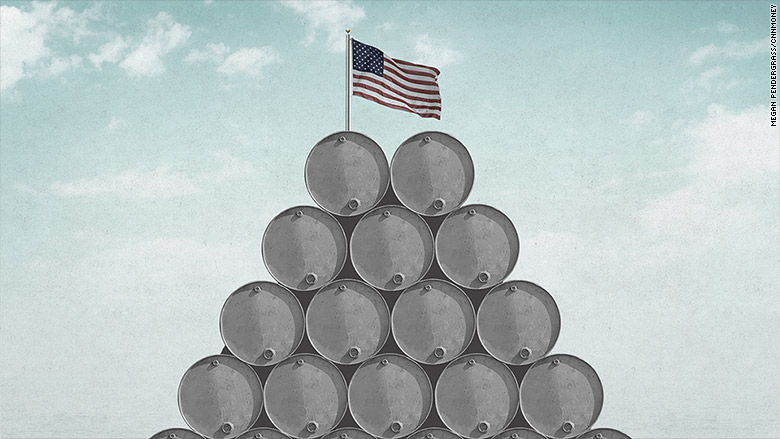America is sitting on a world-leading 264 billion barrels of oil reserves, according to a new estimate by Rystad Energy. It's a sign of the dramatically reshaped global oil landscape thanks to the shale revolution.
money.cnn.com
That is news to me?
All reports I have ever read in the last 50 years say the US has lots of coal, but very little oil.
But your link is CNN Business News, and it is not impossible for something to have changed?
But shale oil is not much fun.
It is also called "tar sands".
You have to not only use explosives to break up the rock layers, but lots of steam to liquify the oil and wash it out.
{...
The development of "oil shale" (not to be confused with "shale oil") and "tar sands" has been shown to be environmentally destructive, and water and energy intensive. Extracting oil from U.S. public lands through oil shale or tar sands would deal a disastrous blow to any hope of reducing atmospheric CO2 levels to below 350 parts per million — the level we need to reach
soon to stabilize Earth's climate. Besides helping push us toward global warming catastrophe, oil shale and tar sands development destroys species habitat, wastes enormous volumes of water, pollutes air and water, and degrades and defiles vast swaths of land.
Tar-sands development is already occurring in some places in the United States — and has taken off big in Alberta, Canada (a country also pondering oil-shale development). In fact, it has become one of the fastest-growing sources of greenhouse gas emissions in that country. In the United States, despite the wastefulness, pollution and serious climate dangers that go along with oil shale and tar sands development, oil companies want access to millions of acres of public lands for the practice in the Colorado River basin. These lands, currently open to the public for top-quality outdoor recreation, include prime trout-fishing areas, America's healthiest elk herds, rare plants found nowhere else in the world, and many endangered and threatened species. These are also areas that support rural lifestyles passed down for generations — not places to locate strip mines, oil refineries, power plants, and all the highways, pipelines, power lines and dumpsites to support them.
...}

/cloudfront-us-east-2.images.arcpublishing.com/reuters/JJZ4JGN6VJK4VGY3DNKYFNQDT4.jpg)
